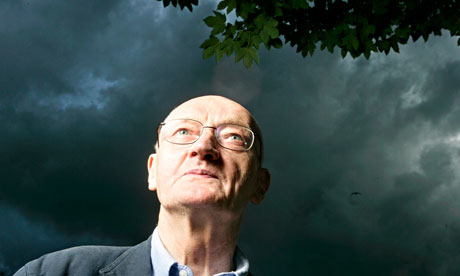
David Hume, an Edinburgh man, discovered, when he was just over 20 years old, that he could not believe the Gospel stories of those miracles upon which Christianity was founded, their improbability far outweighing the credibility of their authors. He was cautious enough, however, to suppress his arguments for more than a decade and when he did publish them, as part of An Enquiry Concerning Human Understanding, he did so in a spirit of irony: "Upon the whole we may conclude that the Christian religion was not only at first attended with miracles, but even at this day cannot be believed by any reasonable person without one."
Richard Holloway, in contrast, did resign as Bishop of Edinburgh in 2000 when he was 66. He did so with sorrow and his memoir is the account of his growing breach with the Episcopal church, until he sadly walked away from it and, perhaps less certainly, from Christianity.
The difference between Hume and Holloway is that Holloway is a romantic. Before he was 14, when he went to board at Kelham, the Anglican seminary in the Midlands that prepared boys for the priesthood, he had experienced the "latency" of landscape. He used to walk miles in the hills above the Leven Valley, usually alone, feeling the yearning for that something more, something nameless of which the landscape spoke but which eluded him.
In a less Wordsworthian spirit, he sought this "something more" in the American movies he loved, many of them westerns. It was his romantic imagination that "propelled" him to embrace the monastic rigours of Kelham and to love and understand its ethos. The Christian faith, indeed, might well have absorbed and satisfied him if its institutions had not so often demanded not mere faith but dogmatic certainty.
Holloway's apparently bottomless candour reveals a touch of bad faith, even at Kelham. He felt that while others were really pious, he played the pious part, swinging the incense just a little too enthusiastically. As children say, he was "being" a novitiate, he was not really one, just as Sartre's waiter was "being" a waiter, as, duty-bound, he attended almost too assiduously to his clients' needs. Later, as the priest in charge of Old Saint Paul's, a poor parish in Edinburgh, Holloway seemed to reach a plateau of near-peace, by becoming one of those active Christians who find God only in the hopeless and dispossessed, the less said and the more done the better.
But here, too, he watches himself "being" a sort of social-worker/priest, and slightly overplaying the part; at one time, he decided that this involved following the early Christians in holding all things in common. Money, time, food were all to be shared not only with his curates, but with every vagrant, mad or sane, drunk or sober who knocked on the door. This, fortunately, was short-lived. Holloway, the real imaginative solitary, could not stand it. But it may have increased his sense of being a whited sepulchre, a disappointment to himself and others, which had haunted him since he left Kelham without becoming a celibate priest.
Richard Holloway's developing thoughts about the nature and purpose of religion, and especially about the status of the Christian narrative, slot seamlessly into the story of his own life; in fact, they form its principal drama. There were two things wrong with the work of the Christian fathers who shaped the Bible and established the church. The first was their ignorance of the origins of the universe. We cannot blame them for this, but we should not pretend to share it when we know better.
The second was culpable, even then. They did not understand the nature of myth. This failure has had a profound effect on religion, producing the finally intolerable tension between pretending to believe a narrative to be factually true and understanding the meaning of that narrative, the truth that it contains, without denying that it is the product of imagination. It is Holloway's insistence that Christianity is a great work of the human imagination that makes his memoir so compelling and so intense. What he loves about the narrative is its central figure, who possesses endless pity for human beings and is endlessly subversive, in preferring compassion to rules. What he came to hate about the church is its insistence on rules, which turns it to cruelty, not pity. The attitude of the church towards women and homosexuals, which Holloway in the end could stand no more, illustrates the way the supposed rules drive out love.
Nobody, whether interested in religion or not, could fail to be intensely moved by the last chapters of the memoir. Holloway, unlike Hume, is not a cautious man. He does not tell us what he said to George Carey, then Archbishop of Canterbury, when he, visiting Holloway's patch, publicly uttered a fatwa on the recently published Godless Morality. He tells us only that he was "not pleased". But another time, his unruly tongue got him into deep trouble. Hearing of the absurd arrangements of "flying bishops" to look after those who could not agree to women priests, he exclaimed: "Oh the miserable buggers! The mean-minded wee sods!" What a deeply lovable man; and what a wonderful book he has written.

